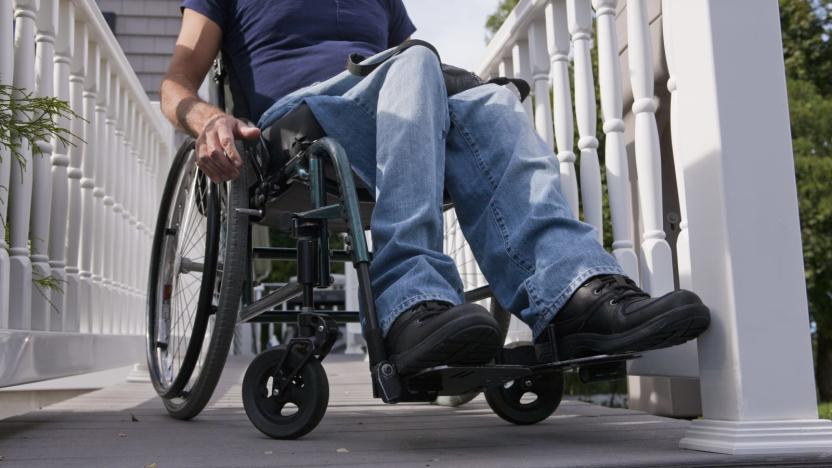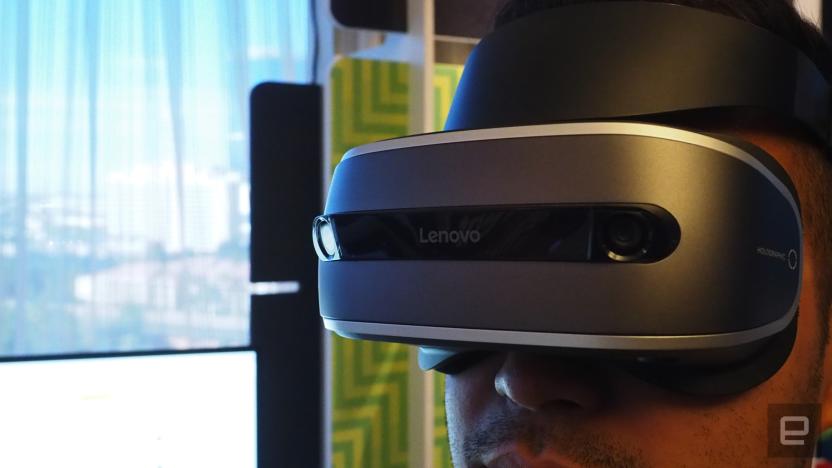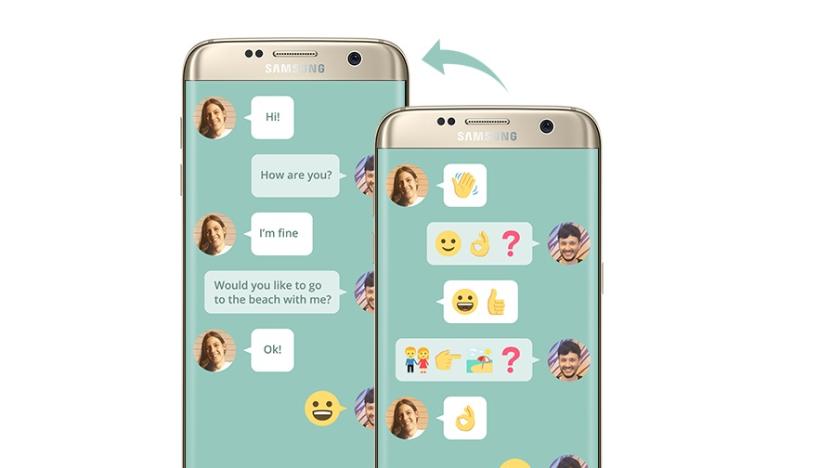disability
Latest

Airbnb makes it easier to find accessible rentals
Airbnb is making quick use of the travel accessibility startup it bought a few months ago. The rental service has introduced 21 filters that help you find disability-friendly listings that meet your exact needs. You can look for ramps, wide hallways, roll-in showers and other features that can help if you use a wheelchair or otherwise have special mobility requirements. Previously, Airbnb had a simple "wheelchair accessible" filter that frequently left glaring omissions.

Google pauses crackdown on apps that use accessibility features
Almost a month ago, Google cracked down on developers that used Android's accessibility features for apps that weren't expressly created for people with disabilities. The company told developers that they had to show how their code actually helped those with a disability or face removal from the Play Store within 30 days. Now, however, Google is pausing that final solution for another month to consider "responsible and innovative uses of accessibility services."

Airbnb buys startup to help you find disability-friendly rentals
Airbnb knows its hosts haven't always been kind to people with disabilities, and it's taking some definitive steps to fix that weakness. The company just bought Accomable, a startup that helps you embark on disability-friendly travel. While Accomable is winding down over the months ahead, its accommodation listings will find their way into Airbnb's entries for over 60 countries. You'll know if a host really does have accommodations for disabled guests throughout the home, not just wheelchair access at the entry. Also, Airbnb is pursuing its own improvements to help you make more informed choices.

Autonomous wheelchairs arrive at Japanese airport
Passengers with limited mobility will soon be able to navigate airports more easily thanks to Panasonic's robotic electric wheelchair. Developed as part of a wider program to make Japan's Haneda Airport more accessible to all, the wheelchair utilizes autonomous mobility technology: after users input their destination via smartphone the wheelchair will identify its position and select the best route to get there. Multiple chairs can move in tandem which means families or groups can travel together, and after use, the chairs will 'regroup' automatically, reducing the workload for airport staff. The chairs also use sensors to stop automatically if they detect a potential collision.

Uber sued again for failing to accommodate disabled passengers
Despite Uber's programs to serve the needs of people who use wheelchairs, the ride sharing company faces a long line of lawsuits and complaints about its ability to serve people with disabilities. The Equal Rights Center claims that the company is in violation of Title 3 of the Americans with Disabilities Act as well as the DC Human Rights Act in Washington, DC. Mississippi riders have filed a similar suit, alleging that "persons with disabilities in Jackson have no ability to call a wheelchair accessible vehicle or a specially trained driver through the Uber app." Now there's a suit against Uber in In New York City. Disability Rights Activists (DRA) just filed a class action by a "broad coalition of disability groups and disabled individuals in New York City," saying that Uber is 99.9% inaccessible to people with mobility disabilities.

Engadget at E3: Making virtual reality accessible for everyone
Virtual reality is changing gaming. If it works for you, that is. The technology adds a wearable component to gaming input, and this brings new (occasionally insurmountable) challenges to gamers with disabilities. Amy Kneepkens, head video creator at AbleGamers, joined us onstage at E3 2017 to give us a view into accessibility issues affecting virtual reality.

Samsung's emoji chat app helps people with language disorders
It seems like emoji has become a language of its own, but each symbol is really a stand-in for a wide array of thoughts and emotions. This shorthand can be useful for someone who struggles to digest written words -- like those with aphasia, a language disorder that impedes people's ability to read, talk and write. To help this group, Samsung developed Wemogee, a chat app that translates written phrases into emoji bursts to enable fluid conversation.

Xbox Elite controller opens up games to people with disabilities
AbleGamers program director Craig Kaufman knows he's done his job when a kid comes running up to him on a busy convention show floor and screams, "I can stab people now!" "And I'm like, you shouldn't yell that in public -- but it's exciting," Kaufman says. "All the kid wanted to do was stab people and we helped him." Kaufman is talking about stabbing people in Call of Duty, not real life. The AbleGamers Charity's core mission is to open up gaming to people with disabilities, which often means giving away specialized controllers that respond to breathing, can be mounted on wheelchairs, or offer single-click solutions for more complicated actions like using analog sticks. However, AbleGamers is always looking for simpler and more accessible options, and this year they found one: the $150 Xbox Elite controller.

Google.org pledges $20 million to support disability technologies
The World Health Organization estimates 1 billion people across the world live with disabilities, and Google's philanthropy division, Google.org, just pledged $20 million to help improve their situations. The money is spread across 29 programs working on disability technologies -- the average amount they'll each receive is $750,000, with six of the grant winners getting more than $1 million, Wired reports.

Mind-controlled robot gives the disabled a taste of home
Brain-controlled robot limbs have already helped the disabled gain some mobility, but full-fledged robots have proven elusive: how do you use thoughts to steer a free-roaming machine? Swiss researchers think they have the answer. They've developed a mind-controlled telepresence robot that lets those with motor disabilities travel when it would otherwise be impractical. It's ultimately a laptop on a pedestal, but it uses clever semi-autonomous software to take the hard work out of controlling where the robot goes. You only have to don an EEG-based cap and imagine moving your hands or feet -- the robot plots a path based on your commands, and avoids obstacles all on its own.

Steam Controller gives disabled player one-handed 'Skyrim' controls
Valve's Steam Controller, like PC gaming in general, is highly customizable. Whether you think its large, circular trackpads are an annoyance or a revolution, there are plenty of ways to tweak how they perform in-game. One thoughtful user, Chris Hepburn, has remapped the buttons in Skyrim to help a disabled player fully control their adventurer one-handed. The right haptic pad controls the camera, while tilting the controller up, down, left and right handles character movement. The right trigger is used both to attack and defend, depending on whether you tap or hold with your finger. The A, B, X and Y buttons have been left untouched, while tapping the left analog stick changes your immediate weapons. Hepburn says the control scheme works best with a cushion for support -- reaching for the analog stick and waggling the controller can get a little tiresome otherwise. The Reddit community has suggested he make a left-handed alternative too -- anything that makes games more accessible is a worthwhile endeavour in our books. Top work, Hepburn.

Massachusetts grills Uber and Lyft over disability access
Ridesharing outfits make some effort to accommodate disabled passengers, but Massachusetts isn't sure that they go far enough. Reuters has learned that the state's Attorney General is grilling Uber and Lyft over the levels of disability access they provide. There aren't any official actions under way, but this is the first time that any US attorney general's office has given accessibility a look. That's bound to make the two companies nervous when both of them are facing lawsuits over their support for guide dogs and wheelchairs.

Google to create 'universal access for people with disabilities'
One billion people worldwide live with a physical or developmental disability. And for those in developing nations, many of these disabilities dictate a life of social and economic marginalization. But Google's doing something about it. The company announced Tuesday that it is funding a $20 million grant for its latest Impact Challenge, one aimed at making the world more accessible for those with disabilities.

Honda's latest robotic stool is fun to ride, still impossible to buy
One of the several reasons for why we love CEATEC is that we get to test ride human transporters there (as well as meeting robots of all sorts). Last year we came across Honda's stool-like UNI-CUB, and this year, the company is back with a new and improved model dubbed UNI-CUB Beta, and it even let attendees ride the vehicles -- while wearing Epson's smart glasses, no less -- around the show floor under staff supervision. It should be noted that the Beta was actually first unveiled at the Tokyo Motor Show last November, but that didn't kill our curiosity. Read on for our impression and hands-on video.

Talkitt voice software helps the speech-impaired communicate in any language
Over the years we've seen companies big and small introduce products to aid users with speech impediments, but many of these solutions ignore the fact that disabled users still have a voice. Talkitt, a new application currently up for crowdfunding on Indiegogo, translates users' pronunciation into understandable speech and plays back their words on a smartphone or tablet. Danny Weissberg, co-founder and CEO of VoiceItt, the company behind the product, said he began developing Talkitt after his grandmother had a stroke and experienced difficulties in communicating. For people with other conditions such as Lou Gehrig's, Cerebral Palsy, Brain Damage, Autism and Parkinson's Disease, this tech could make everyday tasks, such as ordering lunch and communicating with friends, more manageable.

Brain implant restores control of paralyzed muscles
The quadriplegia that comes as a result of a serious spinal cord injury cuts off the lines of communication between a person's brain and their limbs. The condition is often irreparable, and those who suffer it do so for the rest of their lives, but surgeons at Ohio State University and researchers at Battelle might have just struck back at the condition. Using a technology called Neurobridge, the pair have been able to offer Ian Burkhart, a 23-year-old who was paralyzed after a diving accident, the ability to move his hand with his own thoughts for the first time in four years.

QuadStick controller opens up PS3, PC and Android titles to quadriplegic gamers (video)
Playing PS3 games could soon get a little more inclusive. QuadStick, a suitably complex mouth-based controller that offers quadriplegics the ability to play console games, has launched its fundraising campaign on Kickstarter. The controller is composed of a single joystick, four sip-and-puff sensors, a lip position sensor and a push switch, all hooked into a 32-bit ARM processor that outputs to both USB and Bluetooth, and then to gaming hardware. And it's not just for PCs: it'll work with Android devices and PS3s too. (If you have the right adapter, it'll also hook-up to both Xbox Ones and 360s.) Which input is assigned to which in-game button is configurable, although there's several prearranged setups built into the Kickstarter controller, too. The user can use the straws to shift between different control methods, deciding whether to control the left analog stick, the d-pad or navigate using a mouse cursor. Gamers would also be able to use third-party voice recognition suites (like Dragon Naturally Speaking), to add in voice commands too. These could calibrated to pick up word commands and convert them into game-specific actions -- just because triangle is 'jump' in one game, it typically isn't in another. The roots of the project came from Ken Yankelevitz's Quad Control Joystick, with Davison then tweaking and adding to the base design while getting consistent feedback from quadriplegic gamers. Ensuring the mouthpiece fitted correctly was apparently one of the biggest challenges, but it's already working with the likes of Call of Duty -- there's a video of exactly that after the break. At the moment, there's five working prototypes, and if the product reaches its funding goal of $10,000, it aims to make at least 25 units, with plans to scale up depending on how much is raised: the project's already reached over $3,000.

Deaf gamer connects, educates through Wizard101
Even though she can't hear any of the music or sound effects in the game, Kelsey Fireheart professes a strong love for Wizard101. In a guest post on the KingsIsle blog, Kelsey shares a little of what it's like to be a deaf gamer and why this MMO means so much to her. Shortly after starting her adventures in the game, Kelsey had a profound encounter: "I remember questing in the Pyramid of the Sun of Krokotopia and I bumped into a fellow wizard named Diana Wildheart. She mentioned that she was deaf, and I gasped in astonishment. I replied, I am deaf too! That's when I realized that I could meet fellow deaf gamers through games like Wizard101." Kelsey said that this friendship made her realize that MMOs could be used for more than just fun and to educate others about what it's like to be deaf. "This game is a wonderful educational tool that I can use to teach countless others and it gave me a way of communicating with no barriers. In fact, it gave me a greater purpose within the game," she wrote. Kelsey said that the visuals of the game are quite important to her and that she wished sign language would be available as in-game emotes.

AbleGamers summer grants offer funds for assistive gaming tech
AbleGamers and Minicore Studios, the developer of coming space-dog adventure game Laika Believes, are teaming up to offer grants to purchase assistive gaming technology to players with disabilities. The program is called the "AbleGamers 2013 Summer of Fun Grant Program," and it's open to people of all ages. Take a look at the grant application here. The application will be live until July 31; after that, the AbleGamers board will review the submissions and dole out funding as they see fit. AbleGamers Founder Mark Barlet says he expects to receive thousands of requests, Game Politics reports. Minicore Studios founder John Warren says it's an honor to be involved in the grant program. "Minicore is a huge supporter of the AbleGamers charity," he says. "We love what they do for the gaming community and those with disabilities. This was a perfect opportunity to get involved and help gamers with disabilities play."

Hack a Day modder builds a custom controller for disabled gamers
Sure, when tinkerer Caleb Kraft found out that pressure switches marketed at the disabled were massively overpriced, he got mad like anybody else. But then he decided to get even the best way he knew how: by building his own, and posting the plans for all to follow on Hack a Day for free. The project came about via a kid with muscular dystrophy named Thomas, who enjoyed Minecraft but may eventually lose the ability to hold a controller or use a mouse and keyboard. Caleb's idea was to build low-pressure switches using a 3D printer and simply map them to the Minecraft keyboard and mouse commands using a $20 Teensy board. He posted his plans online, but since he feels they could be improved on, also created a site called the Controller Project (see the More Coverage link). From there, those in need of a custom device can make a request, other modders can post their own plans and builders can use them to make controllers for donation. Since more is always merrier for such things, if you have those skills or know someone who needs them, hit the source for more info.












